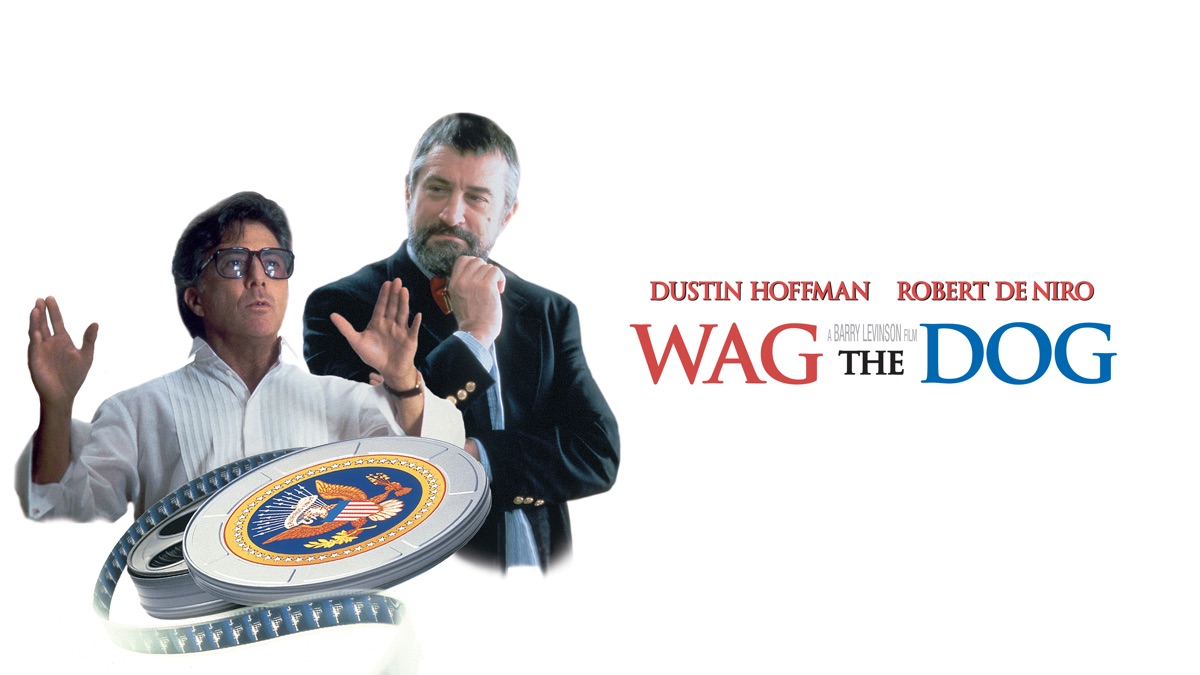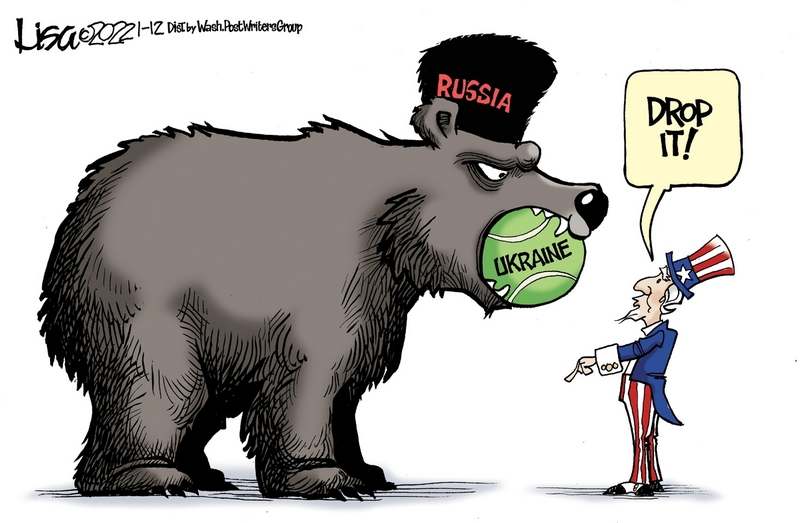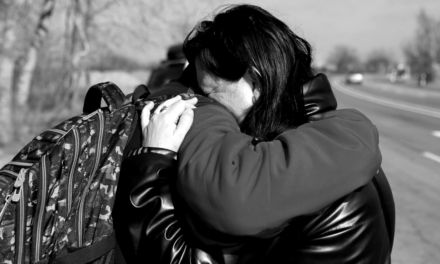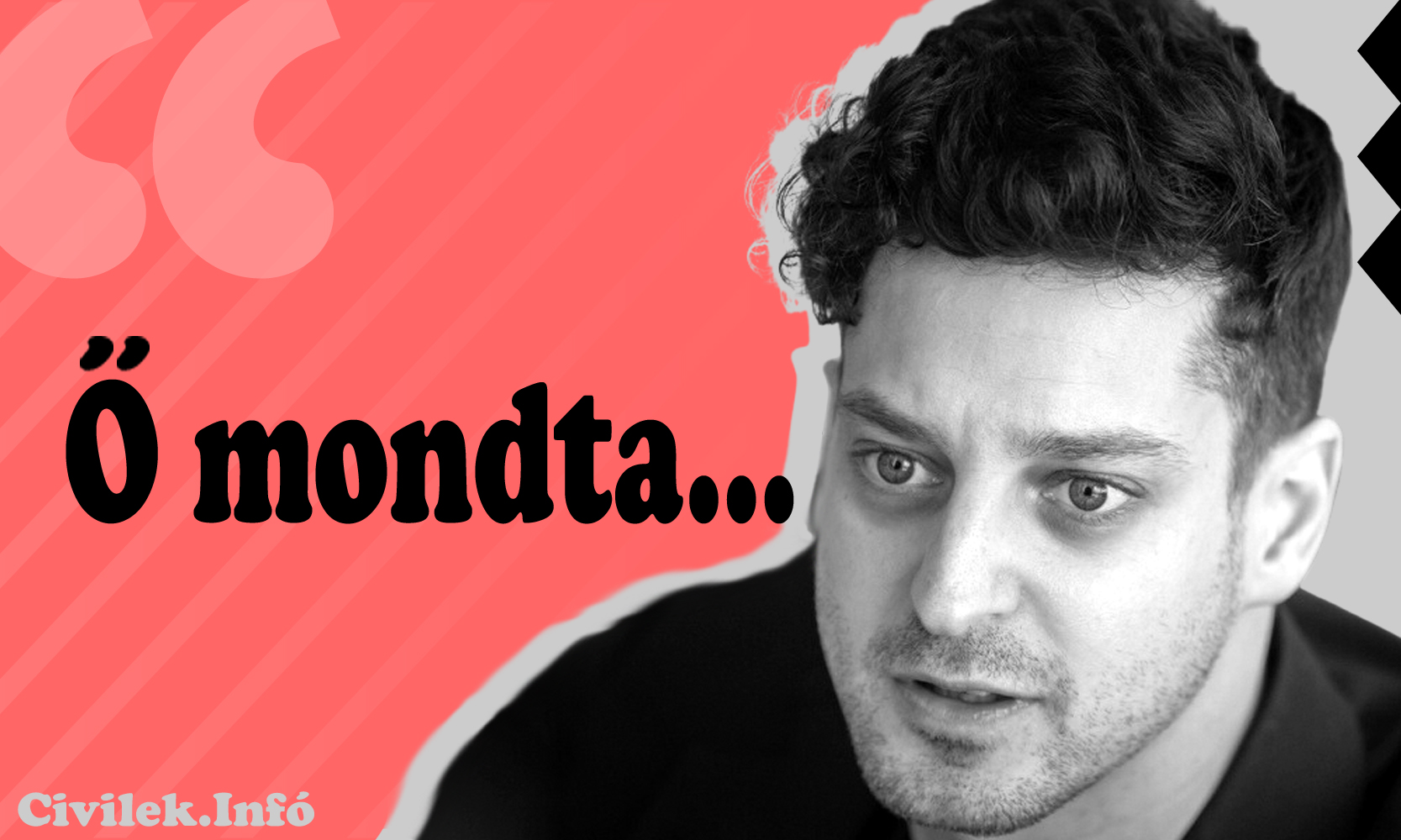We all believe what we want to believe. Whatever best suits our worldview or just our momentary feelings. And sitting in front of the machine, from the warmth of home, we can do this without further ado; we can put up a blue-yellow profile picture, and publicly, on Facebook, we can also wish for the death of Russians with impunity. Yet.
Our world is in a global war of narratives. The various forces and superpowers manufactured a "reality" according to their own goals, which they hammered into people's heads with giant media machines. Today, everything can be achieved with media terror, people can be made to believe everything, which is why no one cares about the fact that the provocateur and one-man winner of the entire war is America - says László Bogár in his interview with Vasárnap .
I remember this movie from America twenty-five years ago,
when Hollywood still knew and wanted to hold a crooked mirror to the world, but primarily to itself.
Barry Levinson's 1997 satire, Wag the Dog, tells the future that we should be wondering not whether the media can influence us, but how far can it go in its manipulation? Is there a limit beyond which people no longer believe what they see and hear on TV, on the Internet, and on the radio?
According to the story, the American president is accused of sexual harassment by a girl scout, just 11 days before the elections, and in order to remedy this, the White House decides to ask for help from the president's secret engineer, Conrad Brean, who creates a war with the help of a Hollywood producer and the media , as if diverting the population's attention from reality.
You don't even care, do you? the White House think tank asks Brean after informing him about the sexual harassment.
What does it matter if it's true? It's news, everyone's riding on it from tomorrow, Brean replies.
But his dialogue with the CIA is similarly instructive:
I am sure of two things, says the CIA agent, there is no difference between a good cause and a bad cause, and there is no war.
How about it, Brean replies, I saw it on TV! He then explains the gist to the agent:
If there is no war, you can go home and play golf. Because it doesn't work without war!

Source: AppleTV
It is a fact that now Ukraine and Russia are wrestling with each other, guns are fired, bombs explode, real blood flows, the victims are real, and we see and hear all this not only on TV, on the Internet, and on the radio. Approximately 250,000 refugees have arrived in our country so far, and who could take the final balance? Is there a war as presented by the Western media? Or military intervention, like the Russians? Who attacked whom? Did the Ukrainians really commit genocide in Eastern Ukraine, killing Russian civilians? Is Ukraine really a puppet state of the USA from 2014? Can a great power be concerned if its rival, another great power, views its neighbor as an area of operations, arms it, raises the possibility of installing nuclear weapons, and operates military laboratories?
Now Putin is holding up a crooked mirror to the Western world, and the situation is that it doesn't matter what we think about whether he is doing it rightly or not. We do not help victims with it, and we do not raise the dead. We can condemn it, of course. Although if we look deeply into the mirror, we might also whisper that we would only have a moral basis to condemn if we had condemned all military aggression, regardless of the identity of the perpetrator.
On February 24, the Russians entered Ukraine, attacking a sovereign country. On March 24, 1999, NATO attacked Yugoslavia without the approval of the UN Security Council. On March 20, 2003, the USA invaded Iraq, and the estimated number of civilian victims of the Gulf War is around 200-250 thousand people. The casus belli was provided by Saddam's chemical weapons, which turned out to be non-existent, only created by Washington. And there is also Afghanistan, Libya, and Syria, which countries the West did not moralize about attacking, just as the existence and number of civilian victims did not reach our stimulus threshold. Yes, not ours either, because we also belong to the West. There?
András Gerő, director of the Habsburg Historical Institute, put it this way in The Duel:
"I accept that it is necessary to stand up for the West, because the Hungarians have integrated into a Western culture. And that's our culture, no question. But first we should clarify what we mean by the West. Because the West also has interests in power politics, which do not necessarily coincide with Hungarian interests. So if I treat the West en bloc and say that the West must be assimilated into everything, then I am saying that it must be subordinated, even in terms of power politics. I see, at least based on the corners of Hungarian history, that Western powers decided on what we call Trianon, and they decided very much against the Hungarians. The truth is that Western powers also decided that Hungary would become a Soviet occupation zone, which was not very good for us. For us, the West is a standard, a way of life and a model of civilization, but in terms of power politics, there is always a Hungarian interest, and the Hungarian interest must be represented, if appropriate, also against the West. His speech (Péter Róna, the opposition's presidential candidate) spoke about the fact that the West must be included in everything."
With this, he pointed out the fatal and catastrophic flaw of the entire Hungarian opposition, its moral-spiritual hiatus, according to which the left-wing coalition is incapable of self-identity, representation of Hungarian interests, incapable of seeing with Hungarian eyes, feeling with a Hungarian heart, and thinking with a Hungarian head, it can only position itself as a subordinate. His "innovation" is to say, "East or West, War or Peace." As if the West is any kind of guarantee for peace. The West, which has started four major wars in this century alone, is the West whose concrete purpose is to provoke armed conflicts in the world.
Viktor Orbán summarized the Ukrainian-Russian conflict in his interview with Mandiner:
"We are in the crossfire of major geopolitical actors, NATO has been constantly expanding to the east, and Russia has liked this less and less. The Russians made two demands: that Ukraine declare its neutrality, and that NATO declare that it will not admit Ukraine. The Russians did not get these security guarantees, so they decided to get them in war. This is the geopolitical significance of this war. The Russians are rearranging the continent's security map. Their security policy idea is that Russia must be surrounded by a neutral zone in order for them to feel safe. Ukraine, which until now was considered an intermediate zone, which they failed to make neutral by diplomatic means, now wants to make it so by military force... There is a change of position at the top of the world. As things stand today, China will soon become the world's most powerful economic and military power. America is in decline, while China is getting stronger. Hungary, with a population of ten million, has to maneuver skillfully in such a period. We are in alliance with the West, but we also want to establish a beneficial relationship with the emerging new great power. This is a complicated task bordering on art for policy makers... We already know what the world is like when there is Anglo-Saxon dominance. But we don't yet know what the world will be like if there is Chinese dominance. One thing is certain: the Anglo-Saxons demand that the world recognize their position as morally correct. For them, it is not enough to accept the reality of power, they also need you to accept what they think is right. The Chinese have no such need. This will definitely be a big change in the coming decades.”
Israeli security policy expert Robert C. Castel formulates the following criticism regarding the conflict:
"When the war broke out, we didn't stop to think for a minute about what it was actually about. No one remembers this anymore, but at the end of February the war did not yet have an existential stake. It didn't have the totality of the wars in the Middle East, the relentlessness of jihad, the seeds of genocide. What was the war about the day the guns started to rattle? About spheres of influence, alliance systems, great power competition, pride and paranoia. About things that nations have fought over for millennia and will continue to fight against each other for millennia. For limited purposes, with limited means. Instead of thinking about it, we did everything we could to turn a limited war into an existential one. First for the Ukrainians, then for the Russians. Unfortunately, all of this was inevitable.
A civilization that acts with the emotional maturity of a bakfis in a raincoat doesn't see nuance. Either total Kantian peace or total war. It is no coincidence that yesterday's moralizing pacifists suddenly found the meaning of their lives in war incitement.
We didn't even do the most basic thing, which would have been morally at least as important as supplying the Ukrainians with old killing tools called Anglians. Take a deep breath, try to swallow the frog of legitimate indignation, and de-escalate the conflict with a cool head. At all costs. Even if the most terrible thing that the human imagination can dream up happens and the EU continues to expand eastward a few years later. Why? Because there is no proportionality in upsetting the largest state in Europe with the largest state in the world."
The world is confusing, people are dying, and the closer the cannons roar, the more frustrated we become. Disinformation is pouring in on us, we don't know what to believe.
Therefore, we all believe what we want to believe. Whatever best suits our worldview or just our momentary feelings.
And sitting in front of the machine, from the warmth of home, we can do this without further ado; we can put up a blue-yellow profile picture, and publicly, on Facebook, we can also wish for the death of Russians with impunity. Yet.
But if we will feel the direct or "only" indirect breath of war on our own skin, will we be able to make a real sacrifice? And if so, for whom, why do we bring it?
Featured Image: The Day












